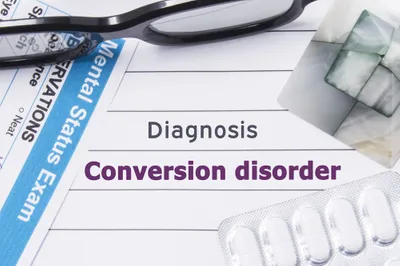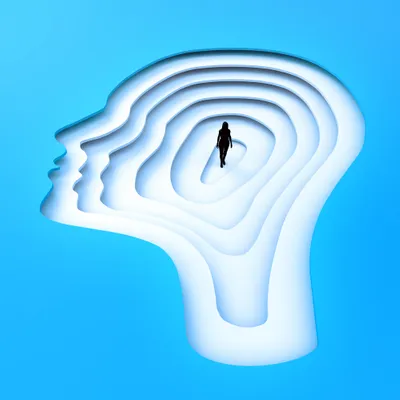Thoughts are very powerful things, so much so that they can cause our bodies to act in strange ways. Psychosomatic (also referred to as somatic symptom disorder (SSD) and psycho-physiologic disorder) is defined as a seemingly purely physical illness (pain, rashes, and other symptoms) that has been created or aggravated by mental conflict or unrest.
Make no mistake; psychosomatic illnesses are real and are generally taken seriously by the medical community, but you may not be suffering from a physical illness in the traditional sense. According to many experts, your mental state can cause or worsen particular physical ailments. Here are six things to know about this topic…
1. Some Skin Ailments Respond to Stress
According to Patient.info, “Some physical diseases are thought to be particularly prone to be made worse by mental factors such as stress and anxiety.” Among those ailments are problems with the skin like eczema, which is scaly and dry skin (although there are varying forms).
The bottom line is, although eczema is on its own is considered an autoimmune disease—when your body’s natural defenses attack healthy cells—it could be the physical manifestation of an unhealthy mind. Although it’s hard to gauge exactly how mental state is worsening this particular condition, the source explains that patients often complain of their worse physical symptoms when they’re at their worst mentally.
2. Psychosomatic Problems are Widespread
In fact, according to Depression-Guide.com, these particular mentally-driven ailments “are among the most common psychiatric disorders found in general practice.” Due to this fact, the source notes that doctors are becoming increasingly aware to take mental health into account when diagnosing physical illnesses.
It’s hard to pinpoint a number of what percentage of physical illnesses are actually driven by emotional factors, but it’s also important to remember your doctor is not downplaying your illnesses by asking for further assessment, adds the source. The doctor will almost always treat the physical symptoms, but will “also be interested to understand more about the person who has the illness,” it adds. This is when other treatments such as psychotherapy could assist.
3. There’s Such Thing as a ‘Broken Heart’
Harvard Medical School talks about “broken heart syndrome” relating to emotional or traumatic factors. Also known as Takotsubo cardiomyopathy, it is associated with physical symptoms such as chest pain and shortness of breath, similar to a heart attack.
The source notes that this condition was first described in Japan in 1990, and it mainly affects older women—in fact, around 5-percent of women of women evaluated for a heart attack actually have this syndrome. This weakening of the heart’s left chamber is often the result of “severe emotional or physical stress, such as a sudden illness, the loss of a loved one, a serious accident, or a natural disaster such as an earthquake.” Luckily, the condition is temporary.
4. Anxiety Patients are Prone to This Disorder
WebMD.com discusses somatic symptom disorder (SSD), perhaps not surprisingly explains many people who experience SSD have been diagnosed with an anxiety disorder as well. However, it points out that people with SSD “are not faking their symptoms,” regardless of their mental state.
It can be frustrating for a person (especially one prone to anxiety) to be diagnosed with SSD rather than receive a solid medical diagnosis, which complicates the matter, notes the source. “Stress often leads patients to become more worried about their health, and this creates a vicious cycle that can persist for years,” it adds.
5. The Varying Forms of Somatic Disorders
WebMD says there are different types of somatic disorders, and describes 2-of them in greater detail. One that the source focuses on is called Illness Anxiety Disorder, which you may recognize better as its former name—Hypochondriasis, or a hypocondriac, which is someone who constantly believes they have a serious disease.
The other iteration is known as Conversion Disorder (Functional Neurological Symptom Disorder), when a patient has neurological symptoms “that can’t be traced back to a medical cause.” These symptoms can range from abnormal movements all the way up to paralysis and even blindness, notes the source. It’s probably no surprise that stress aggravates conversion disorders.
6. Managing Phychosomatic Disorders
Depression Guide notes that it’s sometimes helpful “to look at the whole lifestyle of the person involved” when it comes to addressing a phychosomatic disorder. Factors such as stress management, diet and exercise can be examined and modified, it adds. If you happen to have nausea symptoms from this disorder (vomiting is apparently common), then the source recommends lemon juice and amla (Indian Gooseberry) to “prevent the sensation of vomiting and tiredness.”
The Mayo Clinic explains that certain medications can provide relief (antidepressant medications in particular). It can take several weeks to realize a positive change, and you may need to try various medications to find the most effective one for you, it adds.









